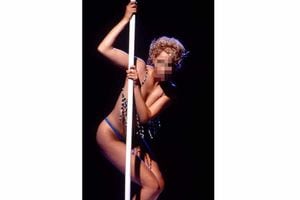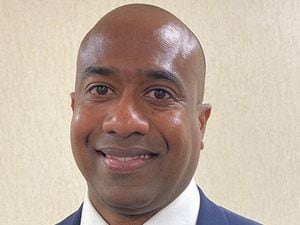More red tape has tightened control on strip clubs
From 2003 licensing laws meant strip clubs in England and Wales came under the same umbrella as pubs, cafes and bars.

It meant that to stop a strip club opening authorities would have prove it was attracting anti-social behaviour or there was a chance it was a danger to the public.
Then in 2009, there was a change in the law, which reclassified venues offering lap dancing, pole dancing and strip teases as 'sexual entertainment venues'.
To add to this in April 2012 all such clubs had to apply for permission from their local council to continue to trade.
Colin Parr, who is Wolverhampton City Council's licensing manager, said authorities now have a greater control on licences.
He said: "Before the current legislation, lap dancing clubs were regulated in the same way as businesses such as pubs, takeaways, and off licences.
"The licensing regime was not prescriptive and this resulted in a growth in the number of outlets across the country.
"Following concerns raised by women's rights and community groups, the Government introduced a new class of licence – the Sexual Entertainment Venue licence – that brought lap dancing clubs into the same regime as sex shops and cinemas.
"Since 2011, local authorities have greater control of the number of venues in their areas and the operation of them."
With attractions come tourists, and with tourists comes disposable income.
And what way to frivolously spend cash than paying for a dance at a strip club.
Councillor Zahid Ali, who is the licensing chief at Walsall Borough Council, said it is the bigger cities that are most likely to see an increase in strip club applications.
He said: "When you have concert halls, football stadiums and attractions you have tourists who spend money.
"This means you get people submitting applications for lap dancing clubs and because there is a market there.
"I can't speak for all councils but I know in Walsall we have better regulation of it.
"I know that an application brings with it a lot of attention and bad press and it is for us as a licensing body to regulate that fairly.
"This is why we hold public consultations and listen to the public.
"We take into consideration where an application will go.
"For example we check if it is near a school or if in the town centre if it will impact on any businesses."
Sandwell Council's licensing portfolio holder Councillor Mohammad Rouf said that in the three years he had held the role he hadn't seen any complaints against applications in the borough.
He said: "Maybe people are used to seeing them on their high street.
"I've seen three applications go in for Sexual Entertainment Venues in the last three years and there haven't been any complaints.
"Most applications seem to be in Birmingham now because it is such a big city.
"We treat an application for a strip club like we would a wine lodge.
"We seek advice from police and consider the location and if there any chance of a problem it would be rejected like any other," he added.
The tougher legislation has meant that some council have introduced a blanket ban on strip clubs in their town and cities.
Licensing bosses have used the reclassification of Sexual Entertainment Venues (SEV) to introduce a 'nil policy' on the number of such clubs under their jurisdiction.
Councils can reject a lap dance bar application on factors that include proximity to schools, places of worship and residential areas.
Example have been in places such as Wellingborough in Northamptonshire where the borough council banned SEVs in 2011.
Last year Central Bedfordshire Council brought in a similar policy for its rural towns which received a 63 per cent backing from residents.
Other locations with this policy include Enfield Council in North London as well as Tower Hamlets in the capital and Leicester.





